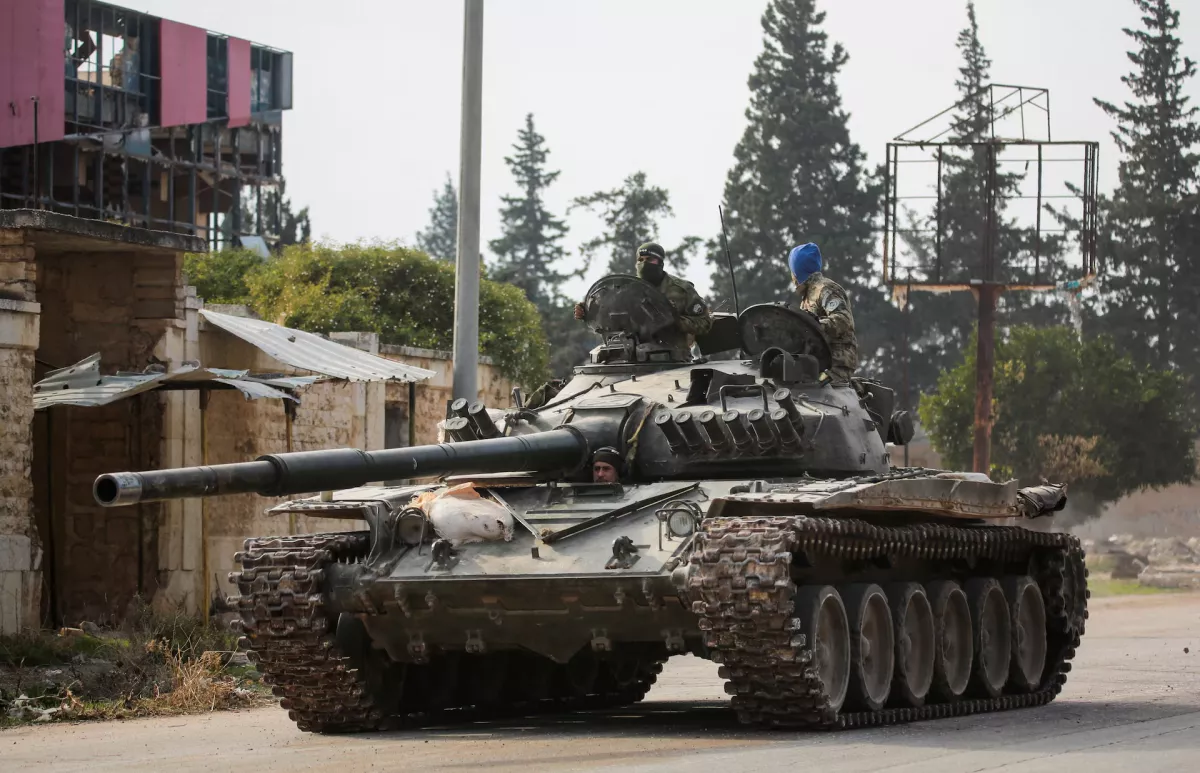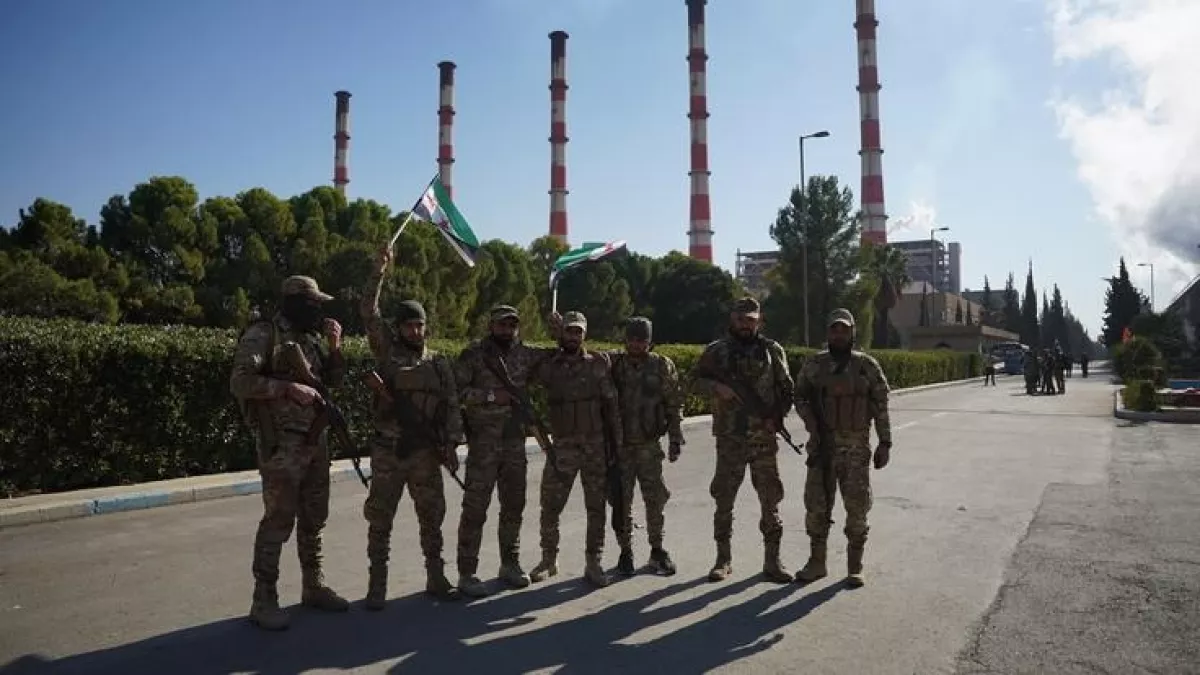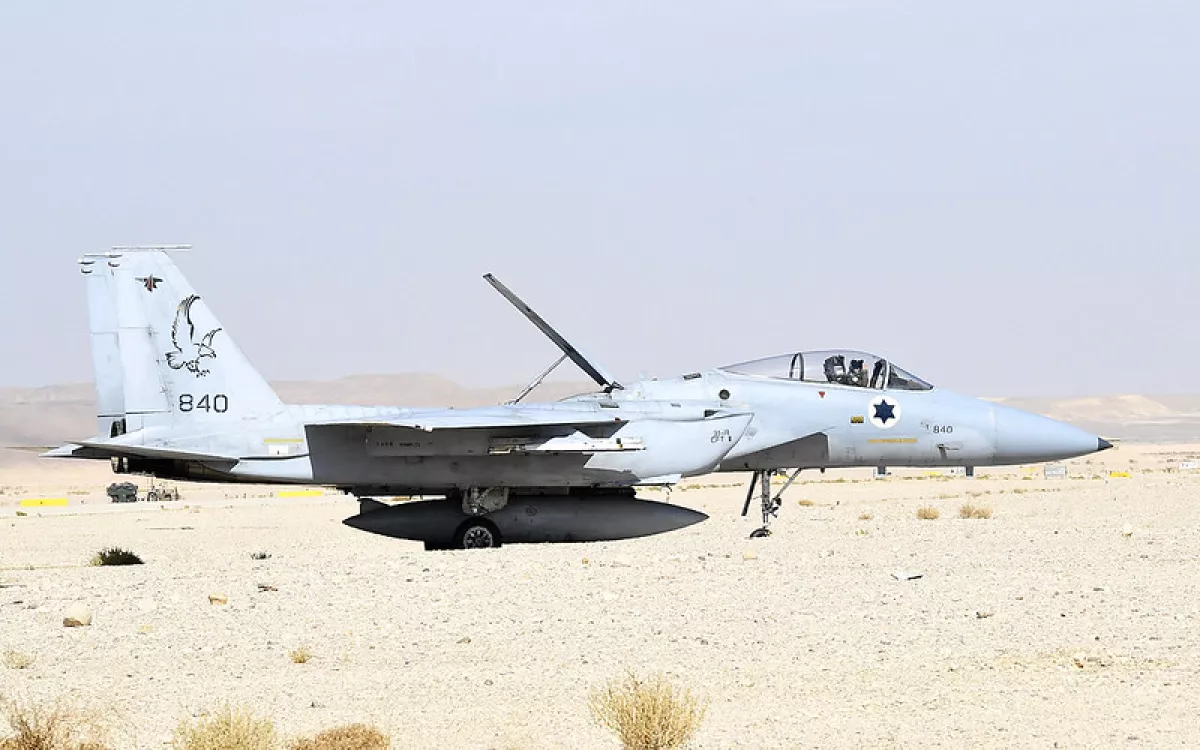Is a Turkish-Israeli alliance taking shape in Syria? Key factors behind the latest developments
Over the past five days, forces from two factions of the Syrian opposition have captured Aleppo, Syria's second-largest city. They have also managed to completely clear the Idlib region of Bashar al-Assad's regime forces and advance toward the major city of Hama.
The quest to understand how this was possible and why the front collapsed so quickly leads us to another question: is there cooperation between Türkiye and Israel regarding Syria?

The offensive on Aleppo was carried out by two groups: Hay'at Tahrir al-Sham (HTS) and the Syrian National Army (SNA). The former previously operated in the Idlib region near the Turkish border, establishing strict control, collecting taxes, and managing administrative affairs.
While HTS has its own resources and was supported in the past by certain Gulf countries, it could not have independently secured the funding to form and modernize a 20,000-strong army. These forces, equipped with modern communications, centralized command, commando units capable of autonomous operations and coordination, as well as specialized divisions operating kamikaze and reconnaissance drones (including jet-powered UAVs), could not have been developed without the involvement of neighbouring Türkiye.
Moreover, it is unlikely that Ankara would have allowed such a well-prepared military force to emerge near its borders in Idlib (where Turkish financial influence is significant, and the population uses Turkish currency) if this force were hostile to Türkiye.
The second anti-Assad faction, the SNA, is not only armed by Türkiye but also operates under the command of Turkish officers, with its operations supported by Turkish artillery and drones. Together with Turkish forces, the SNA controls several regions in northern Syria. It fully coordinated its actions with HTS, attacking Aleppo from the north.

Why does Türkiye need this? First, there is a school of thought in the country that views the regions along the Aleppo–Mosul line in Syria and Iraq as part of Türkiye's sphere of influence. Second, Ankara sees its interests in strengthening ties with former regions of the Ottoman Empire, now independent states, and projecting its influence over these countries. Third, there is the pressing issue of Syrian refugees, which is a sensitive topic for the country: Türkiye hosts around four million refugees, about half of whom are from Aleppo. Ankara hopes that at least some of them will return home amid growing anti-migrant sentiments within Türkiye.
This year, Ankara has twice approached Assad with proposals to address this issue and restore diplomatic relations with Türkiye, but the Syrian government responded with unfeasible demands. Assad insisted that Türkiye withdraw its troops from northern Syria as a precondition for negotiations—troops that currently support the Syrian National Army (SNA). Türkiye could not comply with this demand because Assad’s forces had previously launched multiple offensives into Syrian border regions controlled by anti-government forces, causing waves of people to flee bombardments into Türkiye. The Erdoğan administration is not interested in accommodating another million refugees.
Thus, Türkiye has substantial interests in Syria that could be advanced through the offensives of Hayat Tahrir al-Sham (HTS) and the SNA. At the very least, this could help Türkiye pursue its geopolitical projects, repatriate some refugees, and negotiate with a weakened Assad on its own terms.

What about Israel? Its role in the current events is significant.
Assad’s army is not particularly strong on its own, and in recent years, its combat capability has declined due to the pervasive corruption within the regime. Assad’s primary support in Aleppo came from the units of his allies—the pro-Iranian Lebanese party Hezbollah. These forces, numbering between 5,000 and 10,000, played a key role first in capturing Aleppo for Assad’s regime in 2016 and then in holding it against counterattacks from anti-government groups.
Israel has been actively engaged in military actions against the entire Iranian coalition, the so-called "Axis of Resistance," which includes Hamas, Hezbollah, Iraqi pro-Iranian militias, and Iran itself. The ongoing hostilities between Israel and Hezbollah in Lebanon forced the latter to withdraw most of its forces from Syria. Meanwhile, Israel, through its air force and ground operations, inflicted heavy losses on Hezbollah and the IRGC in both Lebanon and Syria, while also disrupting communications between these countries. This significantly weakened Hezbollah's combat potential, which had been the main force defending Assad in Aleppo. Subsequently, anti-Assad opposition forces managed to breach Assad’s defences and take Aleppo.
Israel, aiming to curb the growing influence of its primary adversary, Iran, in Syria, has long been conducting its "War Between Wars" campaign. Through airstrikes, it has targeted Iranian facilities and Hezbollah bases in Syria. However, in recent months, these strikes have intensified significantly.
Even if Hezbollah and its allies manage to restore supply routes and mobilize convoys to support Assad, this would take days or even weeks. During this time, the pro-Turkish opposition could exploit the delay to make further advances. Moreover, should Hezbollah’s convoys or other pro-Iranian forces, such as Iraqi Shiite militias, attempt to enter Syria now, they risk coming under Israeli airstrikes. Iran’s allies face a serious dilemma.
Both Türkiye and Israel share an interest in weakening the position of their rival power, Iran, in Syria. Their actions seem to complement each other, as though they are cooperating. Are there explicit agreements between them, or is this coordination merely the result of a temporary alignment of interests? We don’t know. However, one fact is clear: Israel and Türkiye are currently aiding each other in addressing their respective challenges in Syria.








